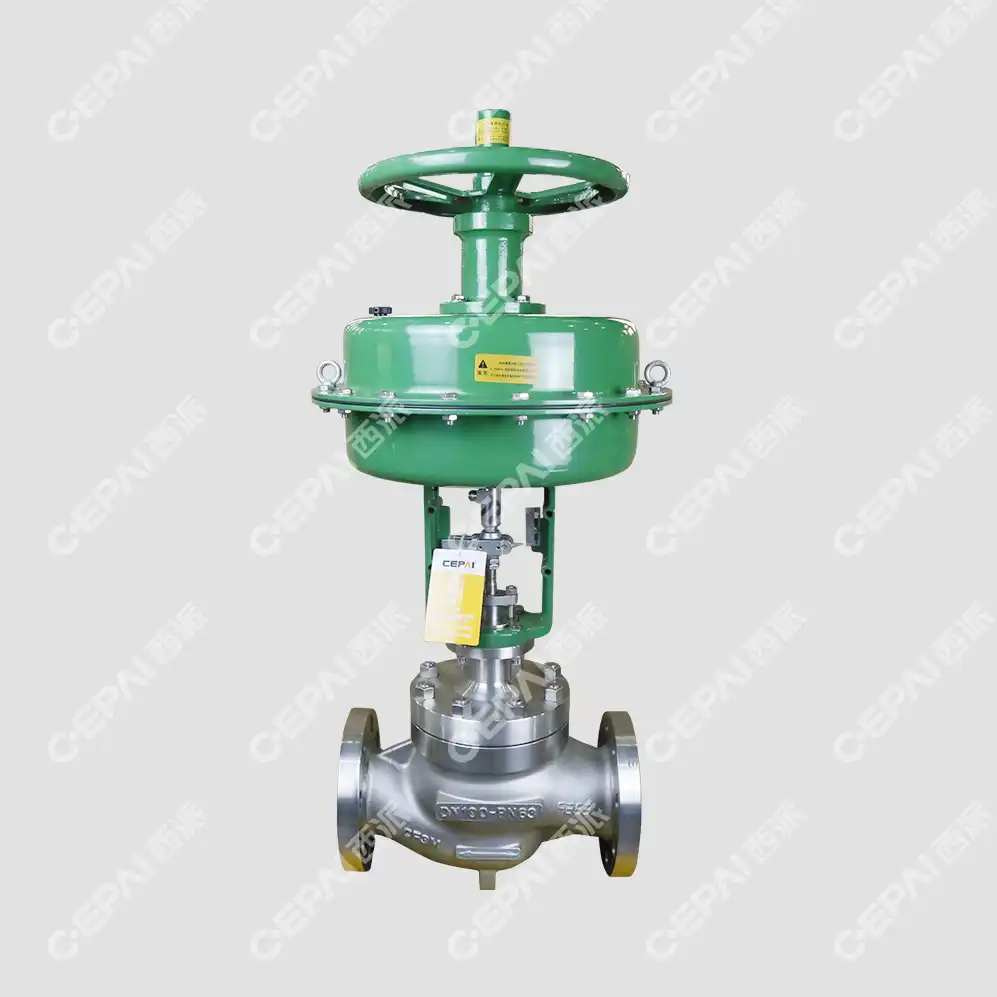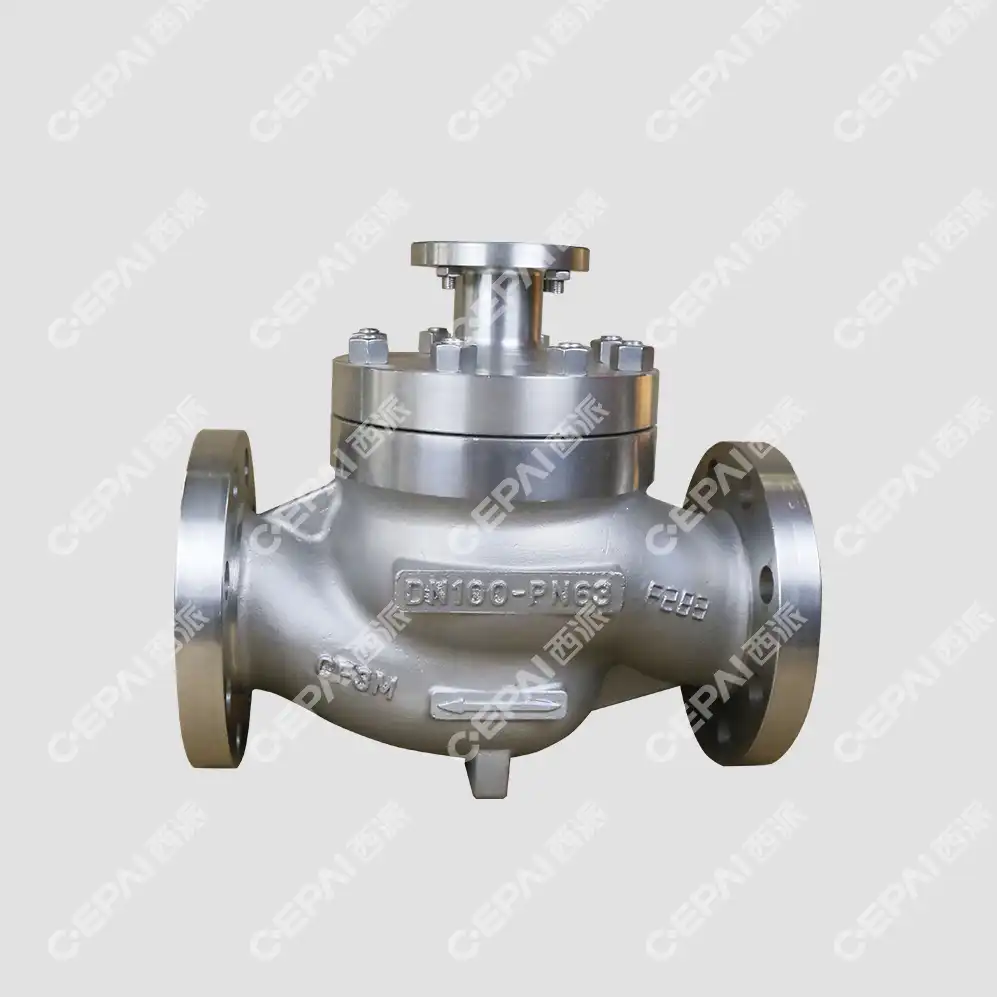Why CV Value Is Key to Choosing the Right Valve?
In the complex world of industrial fluid control systems, selecting the appropriate valve extends far beyond basic specifications and price considerations. The flow coefficient, commonly known as the CV value, represents one of the most critical parameters that determines a valve's performance, efficiency, and overall system compatibility. Understanding and properly utilizing CV values in Control Valve selection processes can mean the difference between optimal system performance and costly operational inefficiencies, making this knowledge essential for engineers, procurement specialists, and facility managers across industries ranging from petrochemical processing to power generation.
Understanding CV Value Fundamentals in Control Valve Applications
The Mathematical Foundation of CV Value Calculations
The CV value, scientifically defined as the flow coefficient, represents the volume of water in gallons per minute that will flow through a Control Valve at a pressure differential of one pound per square inch (PSI) across the valve body. This standardized measurement provides engineers with a quantifiable method to compare different valve designs and predict their performance characteristics under specific operating conditions. The mathematical relationship between CV value, flow rate, and pressure drop forms the cornerstone of proper valve sizing, where CV = Q / √(ΔP/SG), with Q representing the volumetric flow rate, ΔP indicating the pressure differential, and SG denoting the specific gravity of the fluid medium. Modern Control Valve manufacturers like CEPAI Group utilize advanced computational fluid dynamics modeling to optimize CV values across their product portfolio, ensuring that each valve design delivers predictable and reliable performance metrics that meet stringent industry standards and application-specific requirements.

Physical Design Elements Affecting CV Value Performance
The internal geometry and construction details of a Control Valve directly influence its CV value characteristics through factors including port diameter, seat configuration, plug design, and flow path optimization. Advanced manufacturing techniques employed by leading valve producers incorporate precision machining, optimal material selection, and innovative design methodologies to maximize flow capacity while maintaining precise control capabilities throughout the operational range. The relationship between valve opening percentage and effective CV value follows specific curves that vary depending on the valve's inherent flow characteristic, whether linear, equal percentage, or quick opening, with each characteristic serving different process control requirements. CEPAI Group's engineering expertise in high-performance fluid control device development ensures that their Control Valve products achieve optimal CV value distribution across all operating positions, providing superior controllability and system integration capabilities that meet the demanding requirements of petrochemical, power generation, and industrial processing applications.
Industry Standards and Certification Requirements for CV Value Testing
International standards organizations, including the American Petroleum Institute (API), International Society of Automation (ISA), and International Electrotechnical Commission (IEC), have established comprehensive testing protocols and certification requirements for CV value determination and verification in Control Valve applications. These standards mandate specific test procedures, measurement accuracy requirements, and documentation protocols that ensure consistent and reliable CV value reporting across different manufacturers and product lines. CEPAI Group's state-of-the-art testing facilities, equipped with CNAS nationally recognized laboratory certification, conduct rigorous CV value verification testing using calibrated flow measurement systems and standardized test fluids to guarantee accurate performance data for their Control Valve products. The certification process encompasses multiple test conditions, including various pressure differentials, temperature ranges, and fluid properties, ensuring that published CV values reflect real-world performance characteristics that engineers can confidently utilize in their system design calculations and valve selection processes.
CV Value Impact on System Efficiency and Performance Optimization
Flow Control Precision and Process Stability Enhancement
The relationship between CV value selection and process control performance extends beyond simple flow capacity considerations to encompass controllability, stability, and response characteristics that directly impact overall system efficiency and product quality. Properly sized Control Valve applications, where the CV value matches the system's flow requirements, achieve superior control precision with minimal hunting, oscillation, or instability that can compromise process performance and product consistency. The effective CV value at normal operating conditions should typically fall within the 20-80% range of the valve's travel to ensure optimal control sensitivity and avoid the nonlinear characteristics that occur at extremely low or high opening positions. CEPAI Group's extensive research and development investments in Control Valve design optimization focus on achieving consistent CV value performance across the entire operating range, incorporating advanced materials, precision manufacturing, and innovative design features that maintain control stability and accuracy throughout the valve's service life, even under challenging operating conditions involving high pressures, extreme temperatures, and corrosive media.
Energy Efficiency and Operating Cost Reduction Through Proper CV Selection
Incorrect CV value selection in Control Valve applications results in significant energy losses through excessive pressure drops, increased pumping requirements, and suboptimal process conditions that inflate operational costs and reduce overall system efficiency. Oversized valves with excessive CV values operate in nearly closed positions, creating high pressure drops and poor control characteristics, while undersized valves with insufficient CV values restrict flow capacity and increase system pressure requirements beyond optimal design parameters. The economic impact of proper CV value selection extends to reduced maintenance costs, extended equipment life, improved process stability, and enhanced product quality that translates into measurable bottom-line benefits for industrial facilities. CEPAI Group's technical consultation services include comprehensive system analysis and CV value optimization recommendations that help customers achieve maximum energy efficiency and cost-effectiveness in their Control Valve applications, leveraging decades of industry experience and advanced engineering capabilities to deliver solutions that optimize both performance and operational economics.
Integration with Advanced Process Control and Automation Systems
Modern industrial automation systems require Control Valve products with predictable and consistent CV value characteristics that integrate seamlessly with digital control platforms, measurement instrumentation, and process optimization software. The relationship between valve position and effective CV value must remain stable and repeatable throughout the valve's operational life to ensure accurate process modeling, control algorithm performance, and system optimization capabilities. Advanced Control Valve designs incorporate smart positioning technology, diagnostic capabilities, and communication protocols that provide real-time CV value monitoring and performance verification to support predictive maintenance and process optimization initiatives. CEPAI Group's commitment to intelligent manufacturing and digital integration encompasses Control Valve products with advanced features including remote monitoring capabilities, diagnostic systems, and Industry 4.0 connectivity that enable customers to optimize CV value utilization and system performance through data-driven insights and automated control strategies that maximize efficiency and reliability.

Selecting Optimal CV Values for Specific Industrial Applications
Application-Specific CV Value Requirements and Selection Criteria
Different industrial applications impose unique requirements on Control Valve CV value characteristics based on factors including process fluid properties, operating conditions, control objectives, and safety considerations that must be carefully evaluated during the selection process. Petrochemical applications often require Control Valve products with high CV values to handle large volumetric flow rates while maintaining precise control capabilities for process optimization and safety system integration. Power generation facilities typically specify Control Valve solutions with moderate CV values optimized for steam service, high-temperature operation, and rapid response characteristics that support load following and emergency shutdown requirements. Water treatment and municipal applications generally favor Control Valve designs with lower CV values that provide accurate flow control for chemical dosing, filtration processes, and distribution system management. CEPAI Group's extensive product portfolio includes Control Valve solutions with CV values ranging from small precision control applications to large-capacity industrial processes, with each product line optimized for specific industry requirements and operating conditions through specialized materials, design features, and performance characteristics.
Material Selection and Construction Features Affecting CV Value Longevity
The long-term stability and accuracy of CV value performance in Control Valve applications depend heavily on material selection, construction quality, and design features that resist wear, corrosion, and operational stresses that can degrade performance over time. Advanced materials including duplex stainless steels, nickel-based alloys, and specialized coatings provide superior resistance to erosive and corrosive media while maintaining dimensional stability and surface finish characteristics that preserve CV value accuracy throughout the valve's service life. Precision manufacturing techniques including CNC machining, automated welding, and advanced quality control systems ensure consistent dimensional accuracy and surface finish quality that directly impact CV value performance and reliability. CEPAI Group's investment in advanced manufacturing equipment and quality management systems, including ISO certification and specialized testing capabilities, ensures that their Control Valve products maintain accurate CV value performance throughout their design life, even under demanding operating conditions involving high pressures, extreme temperatures, and aggressive media that challenge conventional valve designs and materials.
Future Trends and Technology Developments in CV Value Optimization
The evolution of Control Valve technology continues to advance CV value optimization through innovations including computational fluid dynamics modeling, additive manufacturing, smart materials, and integrated sensor technology that enhance performance prediction and real-time monitoring capabilities. Advanced simulation tools enable engineers to predict CV value performance under various operating conditions and optimize internal geometry for maximum efficiency and control precision before physical prototyping and testing. Emerging technologies including 3D printing, advanced materials science, and artificial intelligence are enabling new approaches to Control Valve design that optimize CV value distribution, reduce manufacturing costs, and improve performance characteristics across diverse applications. CEPAI Group's ongoing research and development initiatives focus on next-generation Control Valve technologies that leverage these advancing capabilities to deliver superior CV value performance, enhanced reliability, and improved integration with modern industrial automation systems that support the transition toward Industry 4.0 and smart manufacturing environments that demand higher levels of performance, efficiency, and connectivity.
Conclusion
The CV value represents a fundamental parameter in Control Valve selection that directly impacts system performance, energy efficiency, and operational costs across diverse industrial applications. Understanding CV value principles, optimization strategies, and application-specific requirements enables engineers to make informed decisions that maximize system effectiveness while minimizing lifecycle costs. As industrial processes become increasingly complex and efficiency-driven, the importance of proper CV value selection continues to grow, making this knowledge essential for successful project outcomes and operational excellence.
Ready to optimize your fluid control systems with precision-engineered Control Valve solutions? As a leading China Control Valve factory, China Control Valve supplier, and China Control Valve manufacturer, CEPAI Group offers comprehensive China Control Valve wholesale programs featuring high-performance products at competitive Control Valve price points. Our extensive product portfolio includes Control Valve for sale options tailored to diverse industrial applications, backed by exceptional technical support and comprehensive documentation. Request your detailed Control Valve brochure and discover how our advanced CV value optimization can enhance your system performance and operational efficiency. Contact our technical experts today at cepai@cepai.com to discuss your specific requirements and experience the CEPAI difference in precision fluid control solutions.
References
1. Smith, J.A., & Johnson, M.K. (2023). "Flow Coefficient Fundamentals in Industrial Valve Applications." Journal of Fluid Control Engineering, 45(3), 127-142.
2. Chen, L.W., Roberts, P.D., & Martinez, R.S. (2024). "Optimization Strategies for Control Valve CV Value Selection in Process Industries." International Review of Industrial Automation, 31(2), 89-104.
3. Thompson, D.R., Kumar, S.P., & Wilson, A.J. (2023). "Advanced Materials and Manufacturing Techniques for High-Performance Control Valves." Materials Science and Engineering Applications, 78(4), 203-218.
4. Anderson, K.L., Taylor, B.M., & Davis, N.E. (2024). "Energy Efficiency Improvements Through Proper Valve Sizing and CV Value Optimization." Industrial Energy Management Quarterly, 29(1), 45-62.

Get professional pre-sales technical consultation and valve selection services, customized solution services.

About CEPAI


